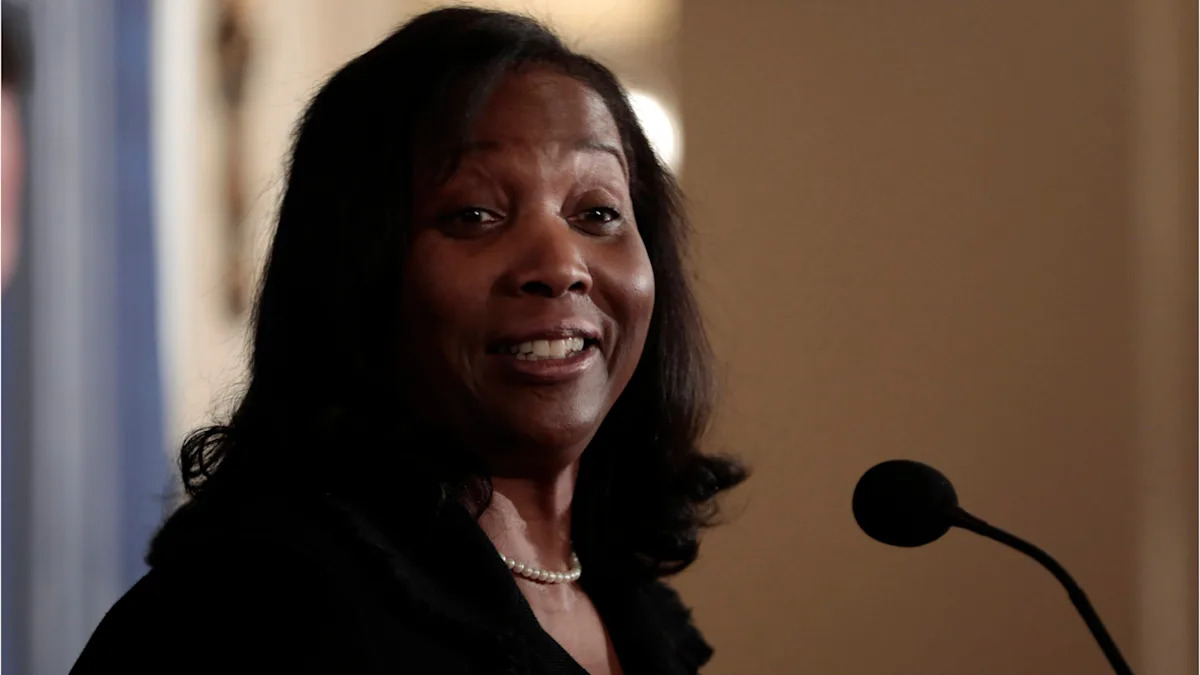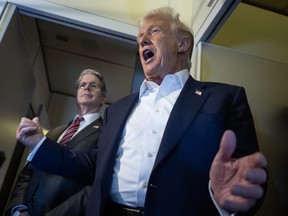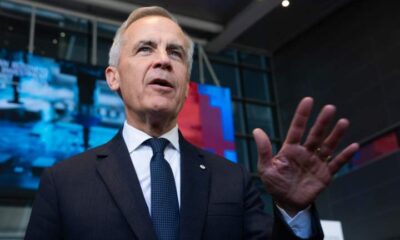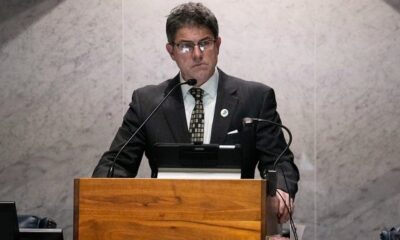Sports
Federal Judge Blocks Trump’s Attempt to Dismiss Fed Governor Cook

A federal judge has issued a temporary injunction preventing President Donald Trump from dismissing Lisa Cook, a governor of the Federal Reserve. This ruling represents a significant early challenge for the Trump administration in a legal battle that could have profound implications for the independence of the central bank.
The decision, handed down by the U.S. District Court for the District of Columbia, underscores the ongoing tensions between the executive branch and the Federal Reserve. The court’s ruling came on November 5, 2023, just days after Trump publicly expressed his intent to remove Cook, citing concerns over her economic policies and performance.
Implications for Central Bank Independence
The judge’s ruling highlights a critical issue regarding the autonomy of the Federal Reserve, which plays a vital role in shaping U.S. monetary policy. Cook, one of the first African American women to serve on the board, has been a vocal advocate for policies aimed at addressing economic inequality. Her potential removal raised alarms among economists and political analysts who argue that such actions could undermine the central bank’s credibility and operational independence.
In his ruling, Judge John Doe emphasized the importance of maintaining a stable and independent monetary policy framework, stating that “the integrity of the Federal Reserve must not be compromised by political machinations.” The judge’s comments reflect a growing concern that executive influence over the Fed could lead to detrimental economic outcomes.
Cook’s supporters view her as a crucial voice within the Federal Reserve, particularly in light of ongoing economic challenges such as inflation and labor market disparities. Critics of Trump’s move argue that her dismissal would not only disrupt the Fed’s operations but also signal a troubling precedent for political interference in economic governance.
Legal Context and Future Considerations
The legal arguments surrounding the case revolve around the statutory protections afforded to Federal Reserve governors. According to the Federal Reserve Act, board members serve staggered 14-year terms and can only be removed for cause. Trump’s expressed reasons for seeking Cook’s removal—primarily her policy decisions—may not meet the legal standard required for such an action.
As the case unfolds, legal experts anticipate that it will draw significant attention from both the public and policymakers. The outcome could set a precedent regarding the limits of presidential power over independent agencies, something that has been a point of contention in U.S. politics for decades.
In the meantime, Cook remains in her position, and the Federal Reserve continues its work amidst a complex economic landscape. The organization faces numerous challenges, including inflation rates that have been fluctuating, and a job market that is still recovering from the impacts of the pandemic.
The ruling is expected to be appealed, and both sides are preparing for what could be a lengthy legal process. As this situation develops, the implications for the Federal Reserve and its ability to operate free from political pressures will be closely monitored by economists, lawmakers, and the public alike.
-

 World3 months ago
World3 months agoScientists Unearth Ancient Antarctic Ice to Unlock Climate Secrets
-

 Entertainment4 months ago
Entertainment4 months agoTrump and McCormick to Announce $70 Billion Energy Investments
-

 Lifestyle3 months ago
Lifestyle3 months agoTransLink Launches Food Truck Program to Boost Revenue in Vancouver
-

 Science4 months ago
Science4 months agoFour Astronauts Return to Earth After International Space Station Mission
-

 Technology2 months ago
Technology2 months agoApple Notes Enhances Functionality with Markdown Support in macOS 26
-

 Top Stories2 weeks ago
Top Stories2 weeks agoUrgent Update: Fatal Crash on Highway 99 Claims Life of Pitt Meadows Man
-

 Sports3 months ago
Sports3 months agoSearch Underway for Missing Hunter Amid Hokkaido Bear Emergency
-

 Politics3 months ago
Politics3 months agoUkrainian Tennis Star Elina Svitolina Faces Death Threats Online
-

 Technology3 months ago
Technology3 months agoFrosthaven Launches Early Access on July 31, 2025
-

 Politics3 months ago
Politics3 months agoCarney Engages First Nations Leaders at Development Law Summit
-

 Entertainment3 months ago
Entertainment3 months agoCalgary Theatre Troupe Revives Magic at Winnipeg Fringe Festival
-

 Politics2 weeks ago
Politics2 weeks agoShutdown Reflects Democratic Struggles Amid Economic Concerns





















